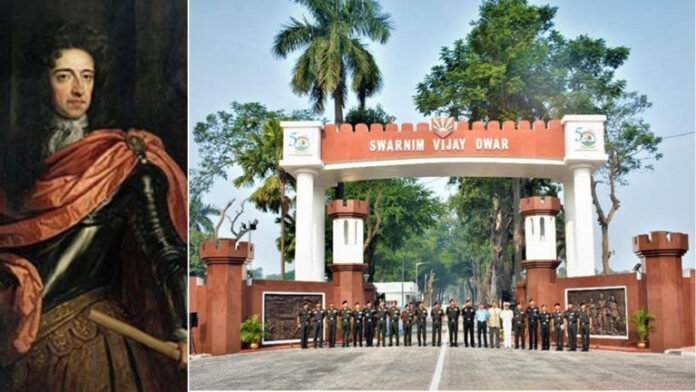Nestled in the heart of Kolkata, Fort William stands as a prominent reminder of the city’s colonial past. Constructed in the late 17th century by the British East India Company, this imposing fort was named after King William III of England—a symbol of British authority and imperial ambition. Over the years, however, growing calls for re-evaluating colonial legacies have ignited a debate on whether the name “Fort William” accurately reflects the values and identity of modern Kolkata. This article explores who Fort William was named after and examines the reasons behind the growing momentum to rename this historical monument.
Fort William was commissioned by the British East India Company during a period when European powers were vying for control over the riches of the Indian subcontinent. The fort was originally designed as a military bastion to secure the Company’s foothold in the region and to protect its lucrative trade interests. Named in honor of King William III—who reigned during a transformative era in British history—the fort symbolized the might and reach of the British Empire. King William III was a key figure in consolidating power in Britain and steering the nation through turbulent times marked by political upheaval and religious conflicts. His legacy, however, is inseparable from the colonial practices that would later shape vast swathes of the world, including India.
For many colonial historians, the name “Fort William” serves as a historical marker—a reminder of a time when British intervention reshaped the cultural, political, and economic landscapes of India. Yet, as India has forged its own path since gaining independence in 1947, the remnants of colonial nomenclature have increasingly been called into question. Critics argue that maintaining names like Fort William perpetuates a colonial mindset, one that overlooks the struggles, sacrifices, and cultural heritage of the local population. In this context, the name has become a point of contention for those advocating for decolonization and the reclamation of indigenous identities.
The debate over renaming Fort William is rooted in broader discussions about the legacy of colonialism in India. For decades, there has been a concerted effort by scholars, activists, and political leaders to revisit historical monuments and place names that are emblematic of a painful past. Many believe that renaming such landmarks is not about erasing history, but about acknowledging and rectifying historical injustices. The act of renaming can serve as a powerful symbol of national renewal and cultural resurgence—a way of affirming India’s postcolonial identity and values.
Supporters of the renaming movement argue that Fort William, as it currently stands, represents more than just an architectural marvel. It embodies the complexities of a past that was marked by exploitation, cultural imposition, and economic extraction. Renaming the fort could be seen as a step towards healing historical wounds, providing a sense of ownership to the local populace, and reasserting an Indian identity that had long been suppressed under colonial rule.
On the other hand, opponents of the renaming contend that the fort is an integral part of Kolkata’s rich historical tapestry and that its current name offers an opportunity to reflect on the lessons of the past. They argue that rather than erasing the memory of colonial rule, the name should serve as a reminder of the resilience and endurance of the Indian people in the face of foreign domination. For them, Fort William is not merely a relic of an oppressive era but also a monument that has evolved into a symbol of the city’s transformation and progress.
As the debate continues, the discussion over Fort William’s name encapsulates a broader conversation about how societies choose to remember—and reinterpret—their histories. It raises important questions about the role of monuments in contemporary society and how these symbols can either reinforce or challenge existing power structures. In a rapidly changing world where cultural identity is being constantly renegotiated, the fate of Fort William’s name serves as a litmus test for how Kolkata, and India as a whole, grapple with its colonial past.
In addition, Fort William was named after King William III, a figure emblematic of British colonial power. Today, as India continues to redefine its identity and celebrate its rich cultural heritage, the question of whether this historic monument should retain its colonial name remains a contentious issue. The debate over renaming Fort William reflects the ongoing struggle to balance historical remembrance with the need to forge a future that is rooted in the values of equity, respect, and cultural self-determination.

